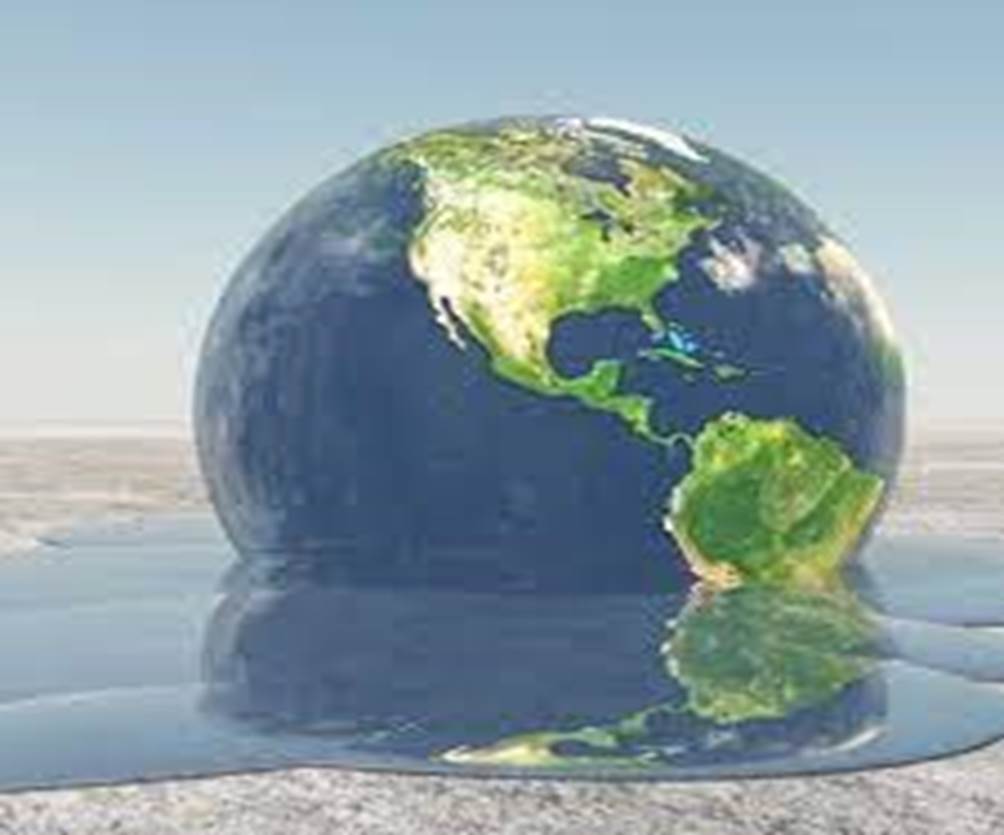

Photo USA Today
Climate Change Is Pushing Earth toward These 5 Disastrous Scenarios, Report Says
By Doyle Rice
The Earth is perilously close to several climate "tipping points," a new report released this week said. These points of no return are specific moments when the planet has warmed so much that certain effects become irreversible.
The report looks at 26 different Earth systems and points to five of them – the melting of the Greenland and West Antarctic ice sheets, the dying off of warm-water coral reefs, the thawing of permafrost and impacts to a North Atlantic Ocean current – as close to triggering.
Of those five, scientists say the most dire are coral reef die-offs and ice sheet melt. This report, which builds on prior research into the topic, is the first to clearly spell out which ones are the most pressing.
The study was released during the ongoing climate summit in Dubai, COP28.
“This report is the most comprehensive review to date on tipping points in the Earth system,” said Sina Loriani of the Potsdam Institute for Climate Impact Research in Germany, one of the report’s lead authors.
Which scenario is the biggest threat to humanity?
There are multiple points that could harm a lot of people, so we can’t just focus on one, study lead author Tim Lenton, of the University of Exeter’s Global Systems Institute, told USA TODAY. "Of the most likely though, widespread coral reef mortality would harm the half a billion people who depend on reefs for their livelihoods (through fisheries, coastal protection, and tourism)."
In addition, Lenton said that ice sheet melt would lock in accelerating sea-level rise, eventually reaching up to 30 feet (over millennia), exposing hundreds of millions to coastal flooding this century and displacing billions of people after that.
How close are we to disaster?
"I would say all five are perilously close to the edge and we cannot rule out that the two big ice-sheet tipping points (Greenland, West Antarctica) are underway," Lenton said.
Report co-author David Armstrong McKay of the University of Exeter agreed, noting that of the five climate-driven points highlighted as being vulnerable at current warming levels, coral reefs are already experiencing die-offs in some regions. In addition, he said "localized abrupt thaw has been seen in some parts of the permafrost, and some individual West Antarctic glaciers have been proposed to be close to or at the point of unstoppable retreat.
"Tipping at a wider, full system scale has not been confirmed for any of these systems yet though, but beyond 1.5 degree Celsius of warming (which is quickly approaching) they will become ever more likely."
Key recommendations
The authors provide six key recommendations to change course, including eliminating fossil fuel emissions by 2050, introducing positive changes in high-emitting sectors like transportation, and convening a global summit on these turning points, according to a statement from Chapman University , which was part of the international team that contributed to the findings.
'Societies will be overwhelmed as the natural world comes apart'
Why is this report so important? “Tipping points in the Earth system pose threats of a magnitude never faced by humanity,” said Lenton.
In fact, according to the University of Exeter, without urgent action to halt the climate and ecological crisis, "societies will be overwhelmed as the natural world comes apart."
These points "can trigger devastating domino effects, including the loss of whole ecosystems and capacity to grow staple crops, with societal impacts including mass displacement, political instability and financial collapse," Lenton said.
More: The world inches closer to feared global warming 'tipping points': 5 disastrous scenarios
Not all doom and gloom: There is hope
The report isn't all doom and gloom, however, as, "emergency global action – accelerated by leaders meeting now at COP28 – can harness positive points and steer us towards a thriving, sustainable future," according to a statement from the University of Exeter.
The report lays out a blueprint for doing this, and says bold, coordinated policies could trigger positive points across multiple sectors including energy, transport and food.
"A cascade of positive tipping points would save millions of lives, billions of people from hardship, trillions of dollars in climate-related damage, and begin restoring the natural world upon which we all depend," the University of Exeter said in a statement.
The report was produced by an international team of more than 200 researchers, coordinated by the University of Exeter , in partnership with Bezos Earth Fund .
Contributing: The Associated Press
This article originally appeared on USA TODAY: Climate change is pushing Earth toward 5 disastrous scenarios: Report

